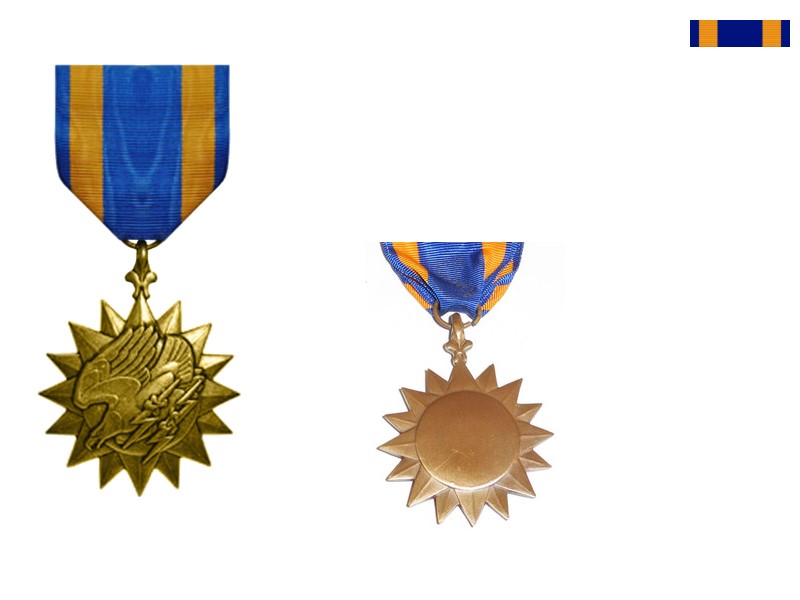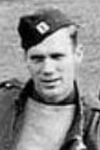Air Medal (AM)
The Air Medal was instituted on May 11th 1942. On March 9th 1942, the Secretary of War suggested to institute the Air Medal an award to "any person who, while serving in any capacity of the Army of the United States, distinguishes himself by meritorious achievement while participating in an aerial flight". Using the Distinguished Flying Cross for this purpose would have degraded that decoration. The original institutional text stated that the decoration was to be awarded to "any person who, while serving in any capacity in the Army, Navy, Marine Corps or Coast Guard of the United States subsequent to September 8, 1939, distinguishes, or has distinguished, himself by meritorious achievement while participating in an aerial flight". On September 11th 1942 this "Executive Order was slightly changed with the words "in any capacity in or with the Army".
The medal was designed by Walker Hancock, who was ordered to temporary duty to the G1 War Department on Camp Livingston, Louisiana, especially to work on the medal.
The Air Medal resembles a Bronze Compass Rose with sixteen points and decorated with a Fleur-de-lis at the top point which holds the suspension ring. On the obverse can be found a downward attacking "American Eagle", clutching a lightning bolt in each talon. The reverse shows a blank raised disk that can bear the recipient’s name and rank.
The ribbon is ultramarine blue with two broad golden orange stripes from top to bottom.
The official criteria are:
- "The Air Medal is awarded to any person who, while serving in any capacity in or with the armed forces of the United States, shall have distinguished himself by meritorious achievement while participating in aerial flight".
- "Awards may be made to recognize single acts of merit or heroism or for meritorious service".
- "Award of the Air Medal is primarily intended to recognize those personnel who are on current crew member or non-crew member flying status which requires them to participate in aerial flight on a regular and frequent basis in the performance of their primary duties. However, it may also be awarded to certain other individuals whose combat duties require regular and frequent flying in other than a passenger status or individuals who perform a particularly noteworthy act while performing the function of a crew member but who are not on flying status. These individuals must make a discernible contribution to the operational land combat mission or to the mission of the aircraft in flight. Examples of personnel whose combat duties require them to fly include those in the attack elements of units involved in air-land assaults against an armed enemy and those directly involved in airborne command and control of combat operations. Involvement in such activities, normally at the brigade/group level and below, serves only to establish eligibility for award of the Air Medal; the degree of heroism, meritorious achievement or exemplary service determines who should receive the award. Awards will not be made to individuals who use air transportation solely for the purpose of moving from point to point in a combat zone."
Any further awarded Air Medal came in the form of an Bronze Oak Leaf Cluster (US Army, US Army Air Force), or Golden Star (US Navy, US Coast Guard and US Navy Marines Corps) that could be worn on the ribbon. Each fifth Bronze Oak Leaf Cluster or Golden Star was awarded as a Silver Oak Leave Cluster or Silver Star. The US Army and Navy also awarded a "V" pin (Valour Device) that denoted special acts for heroism involving aerial contact with an enemy force.









